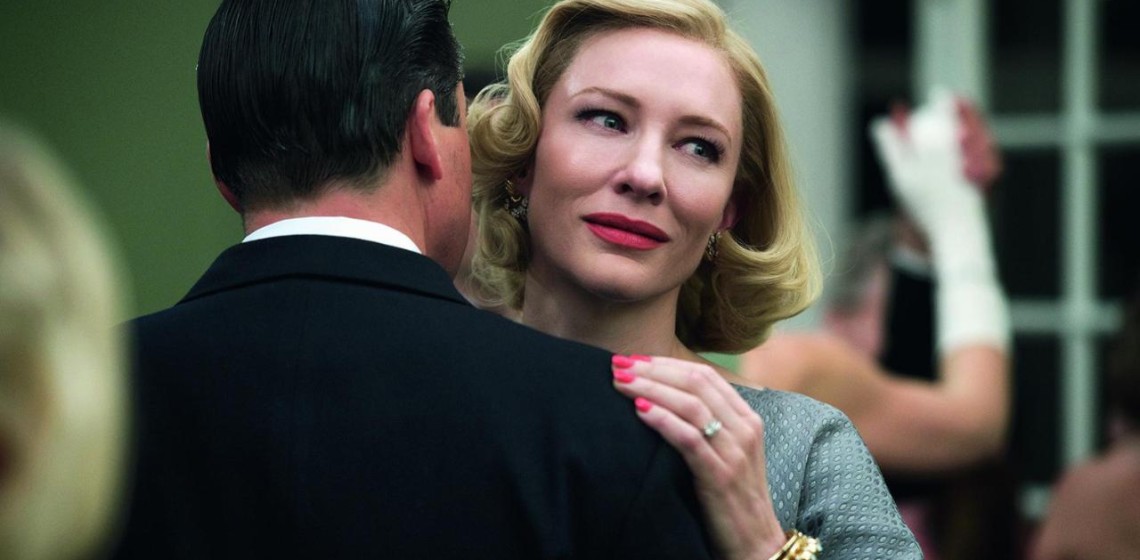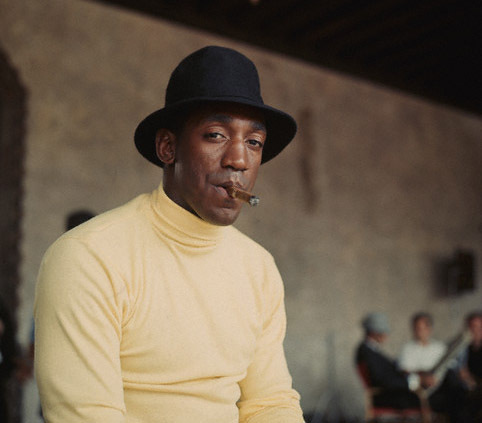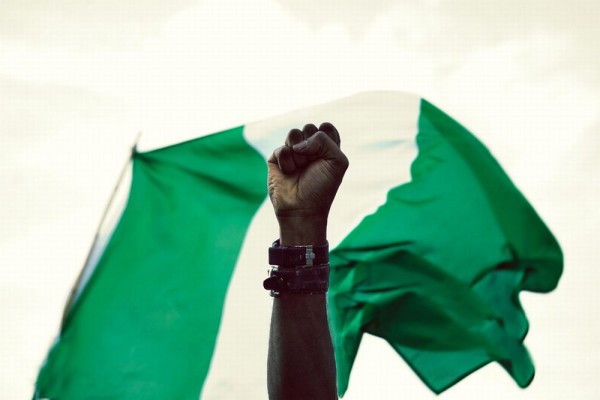“You only know my name. You don’t know my story…”Â
Afrofeminism: The What vs. The How
I’m often asked to elaborate (and in some cases, “define”) afrofeminism. I’ve spoken about how afrofeminism informs my work, explored themes about Love and Afrofeminism series on this blog, and I regularly share afrofeminist perspectives on current affairs and pop culture with my fans on Facebook.
From the work that I do and from the things that I say, I’ve seen quite a number of people over the past year or so been calling themselves Afrofeminists. In fact, just very recently, someone sent me a letter thanking me for offering her a new way to think about her own identity. She asked permission to call herself an afrofeminist because she dug my approach and could relate to most of my commentary, even though she actually had no idea what it meant! It turns out that connecting with people — or even inspiring them — doesn’t start and end with what you are but who you are.
So have I put forth a single definition? No. A single definition (of a single label, among many others I might add) wouldn’t actually help anyone get to know me. I rarely introduce myself using labels; I tell stories, instead… about growing up in Nigeria, about the first time I fell in love, and about the friendships my coming out broke then repaired. I’m so much richer experienced as a complex, whole being than as a cluster of politically correct, ideologically pure sentiments.
“Hi, my name is Spectra, and I’m an afrofeminist”? It would almost feel like cheating: here’s this cute little label that sounds like an amalgamation of afro and feminist, meaning she must have an afro and she must be feminist, and somehow that’s supposed to serve as a shortcut for people to actually get to know who I am. And then, I‘m supposed to gather in large numbers with people who dig the afro and/or the “feminist” and because we totally understand each other, we’ll be better equipped to change the world. Ha! That almost always backfires.
(Don’t believe me? Ask the white “women’s” movement. They still can’t seem to agree on what being a woman means, and are constantly up in arms about which women are being represented, silenced, side-lined etc. Meanwhile, non-women/everybody else is getting away with murder while women are figuring this out).
Straight Allies, White Anti-Racists, Male Feminists, Blablabla
Now don’t get me wrong; labels can be very useful in facilitating initial connections. But people get so hung up on them, activists especially. And as a society, we’ve become so narrowly focused on the theoretical “what” at the expense of the practical “how” of creating change, we’ve forgotten that change happens primarily through our personal relationships, not just passionate rhetoric.
The use of identity labels (the “what”) to build unity and shared understanding often sidelines the need to actually explore complexities and difference i.e. just “how” said identities intersect and manifest in different contexts; since a single word can carry so many subjective meanings for different people, movements are often stumped or stunted the minute they realise that not everyone’s “how” is the same or — even worse — not even functioning.
The Curious Case of “Allies” In General
If my detest for words and definition stems from anything at all it’s the “allies” I’ve experienced in both my personal life and my work as an activist. I’ve met hundreds of “white allies,” for instance, many of who profess their “consciousness” via some digital channel (e.g. an overly serious twitter bio or utopia-inspired vision statement) or, in person, via some self-congratulatory speech masquerading as a relevant anecdote…Â especially when surrounded by women of color.
“We white allies have so much work to do,” they’d go. “Women of color shouldn’t always have to be our teachers.” When I first heard this tune, it was music to my ears, and oh boy did I fall for it. It worked every. single. time.
“Oh my god, yes!” I’d exclaim, “Wow – truth! You’re seriously my favorite person right now!” (‘Cause it was my turn to offer music to their ears.) In retrospect, I realize that many of my initial responses to white allies were pre-programmed — a socialised reaction to ensuring that white women never lingered too long in their vulnerability without affirming their “goodness.” I resisted any responses that would risk making white people feel wrong–or exposed–in their self-righteousness. In fact, making them feel like they needed to *do* anything at all to earn my trust and respect as a woman of color always felt more like a risk than an opportunity. So I’d find myself dishing out exaggerated, empty, endorsements, couching my emotions in the elation I felt at even just the idea that a segment of white people had taken it upon themselves to give a damn about me.
But, here’s the thing: half the time, I never ever remembered their names, or remembered any of our conversations moving beyond the scope of the burden of racial consciousness they had taken up for themselves as “the good white people.” In fact, it took me quite a while to figure out that most of the “white allies” I’d meet in social change spaces (never – NEVER – at work, or at the grocery store, or in my regular every day life) were only ever “white allies” around women of color, and mainly to seek my/our approval.
I’ll never forget this one time a “white ally” had offered to volunteer at a professional networking event I was hosting for women of color a few years back; she’d insisted that she wanted to “do her part in supporting queer women of color community” by showing up and offering her help. She justified this act of good will with all the right rhetoric too: women of color rarely get this space, as a white ally I’m happy to do labor etc. Honestly, I felt so relieved and grateful for her support. I had no idea that her “help” would become my burden for the entire duration of the event.
It’s as though the minute she walked in, all eager and ready to be put to work, she realised that there’d actually be no more than a handful of white people at the event, and became really uncomfortable. “Oh wow, I’m one of the few white people, here…,” she said awkwardly, as she set down her bag and coat, “So cool.” [Replace with “Fuck! I’m not ready for this.”] So what did she do? This seemingly racially-conscious, well-meaning white ally followed me around like a nervous baby duckling for the entire event.  Yup, the entire event. She was so nervous about being left on her own to mingle and – god forbid – socialize with any of the women of color at the event, that she didn’t give me a single moment to have conversations with anyone else but her. Over 100 women of color attended my event that evening, and I don’t think I was able to really connect with any one of them because I had an over-eager, jittery, nervous white girl all up in my business every single minute.
I learned very quickly that being a “white ally” had nothing to do with how I, as a woman of color, needed them to show support when it mattered. Shoot, it was in a conference room of “white allies” that I found myself on the verge of tears (of anger and frustration), my voice shaking as I tried to explain to a privileged white gay dude that doing community outreach to people of color for a program that claimed to be advocating for diversity wasn’t a “distraction.” The “white allies” in the room sat back and watched the carnage as I pushed, and I fought, and I fell back, defeated. Then the “white allies” came to me after the meeting was over and denounced their brethren — “privileged white guy, he needs to do a lot of work on himself.” Apparently, being a white ally meant reminding women of color that they weren’t “those kinds” of white people, that they had our backs, just only ever in private, conveniently away from any of the actual emotional work involved in standing up to racism.
But here’s an afrofeminist principle for ya… “Relationships Over Rhetoric”
Don’t get me wrong — not all people who identify as “allies” do such a terrible job. I know dozens of self-identifying “allies” who hold themselves to a much higher standard, and actually practice their values. (Stay tuned, I’m running a series of interviews with them in June!). That said, terming oneself an ally doesn’t necessarily imply this standard. Some of my closest friends and family are the fiercest “allies” I have, but they’d never call themselves that. They’d insist, instead, that they’re being considerate, trying to get to know me better, or, as one of my best white guy friends says, “resisting against the default of being an asshole.” And you know what? I prefer it that way.
Maybe I’m old fashioned, but I’d rather experience people–and their politics–through unlikely, awkward, strained, challenging, beautiful relationships built over time. That way, when we do clash or differ, we love each other enough to express the full range of our raw emotions – cry, yell, storm out – and always return to build the deeper, more intimate connections we need to take on the world together, truly united.
When someone fights for me, I want them to do so because they care about me as an individual – or as someone who reminds them of someone else that they care about – not just as some abstract theoretical concept. I’d rather that the “white allies”, the “straight allies”, the “male feminists” of the world do the work to build authentic relationships based on real love and respect, not just politically correct lexicon and rhetoric.
So, despite starting off as an activist who was really excited about the concept of “allies”, as I’ve gotten older, I’ve found less use for words and definitions in social justice; labels like feminists, anti-sexists, radicals, allies etc simply don’t mean much to me anymore. Though I certainly see these ideas/concepts as a way of connecting with others initially, ultimately, relationships that last aren’t sustained by what you are to each other, but  how you treat each other.
Falling back on words and phrases that are intended to convey some sort of ideological purity won’t ever trump the transformation you’ll  experience within yourself (and others) if you truly put yourself out there — if you dare to be vulnerable, admit wrongs, take responsibility for your blind spots, hold your damn self accountable, an not for show, but for real.
So, screw the definitions; experience the ideas and world views through the relationships we build with people. Let’s commit to living in principle, and remain mindful of the core values that help us navigate our lives in the gray. Let’s embrace ambiguity, and its potential for unearthing surprise and disappointment in equal measure, because only through the natural bombardment that arises when we converse with strangers, can we learn more about the world, and about each other.





 Love birds Tshepo Modisane and Thoba Sithole, both proudly Zulu and Tswana, have made their union a part of South Africa’s history by deciding to go public with their gay African traditional wedding ceremony, with a few twists:
Love birds Tshepo Modisane and Thoba Sithole, both proudly Zulu and Tswana, have made their union a part of South Africa’s history by deciding to go public with their gay African traditional wedding ceremony, with a few twists: Chimamanda Adichie, a celebrated Nigerian writer said in her famous TEDTalk, “The single story creates stereotypes, and the problem with stereotypes, is not that they are untrue, but that they are incomplete.â€
Chimamanda Adichie, a celebrated Nigerian writer said in her famous TEDTalk, “The single story creates stereotypes, and the problem with stereotypes, is not that they are untrue, but that they are incomplete.â€